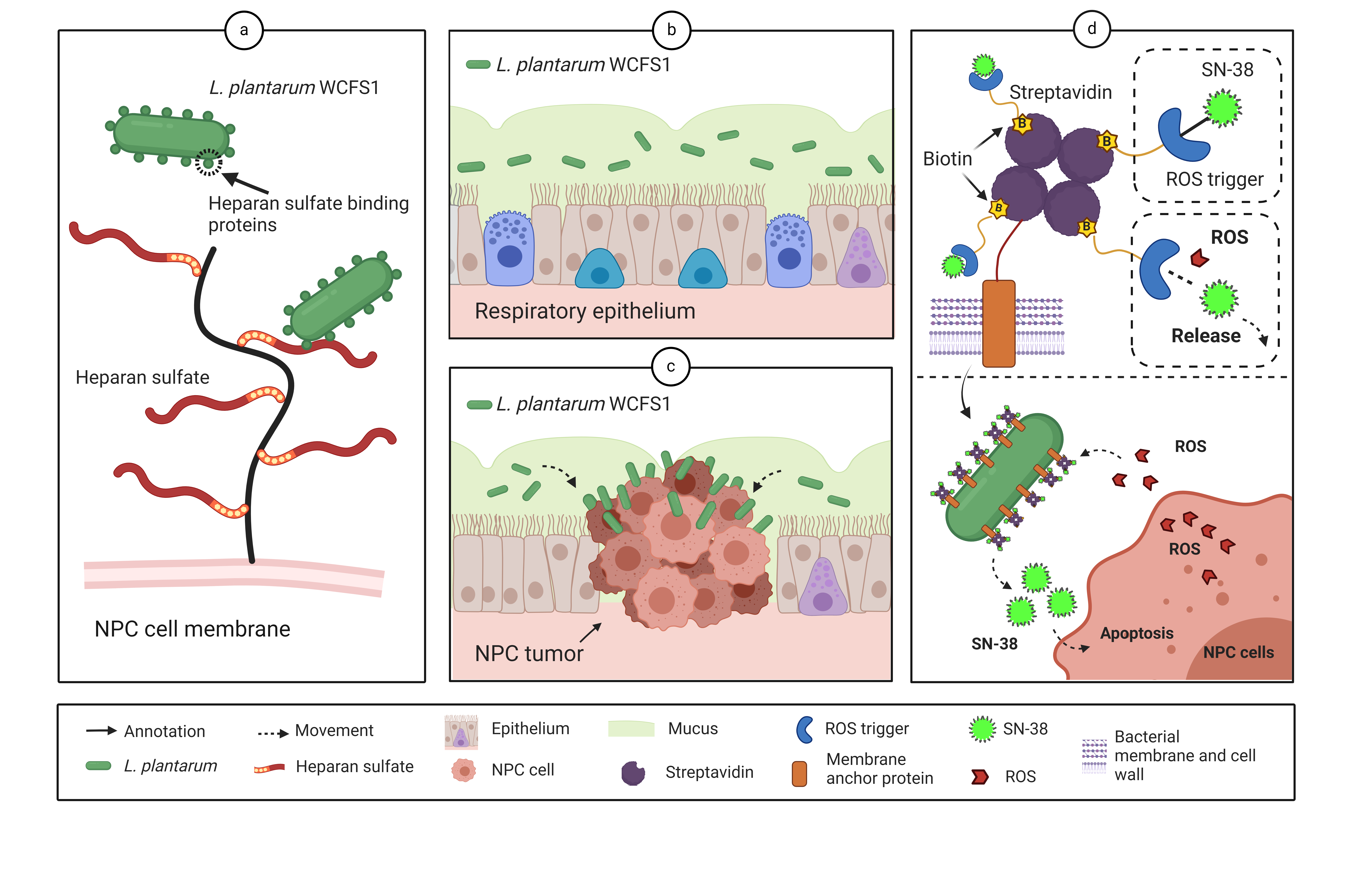NUS Medicine Researchers Engineer Bacteria for Targeted Chemotherapy Delivery
Published: 06 Jun 2024
Traditional chemotherapy often poses significant challenges, including severe side effects, damage to healthy tissue and limited efficacy. Led by Associate Professor Matthew Chang, researchers at the NUS Synthetic Biology for Clinical and Technological Innovation (SynCTI) and the Synthetic Biology Translational Research Programme (Syn Bio TRP) at the Yong Loo Lin School of Medicine, National University of Singapore (NUS Medicine) have developed a revolutionary approach to cancer treatment — one that is a more targeted, effective, and less toxic alternative to traditional chemotherapy. The findings, published in Nature Communications, showcase a novel method for delivering chemotherapy drugs directly to tumour sites. By utilising a commensal Lactobacillus strain that binds specifically to cancer cells via a surface molecule called heparan sulfate, NUS Medicine researchers engineered the bacteria to carry a prodrug that converts to the chemotherapy drug SN-38 at the tumour site in preclinical models of nasopharyngeal cancer. 
Caption: Delivery of SN-38 (a chemotherapy compound) prodrug by engineered Lactobacillus plantarum WFCS1 strain to nasopharyngeal carcinoma NPC cells.
The engineered bacteria localised specifically in the tumour and released the chemotherapy drug directly at the cancer site, reducing tumour growth by 67% and increasing the effectiveness of the chemotherapy drug by 54%. “Cancer treatment often takes a tremendously heavy toll on patients. Our research represents a significant step toward developing a more targeted and less toxic approach to fighting cancer. We hope this can pave the way for therapies that are both mild and effective,” added A/Prof Chang, Dean’s Chair in Medicine and Director of SynCTI and NUS Medicine Syn Bio TRP. As the Lactobacillus strain identified by the researchers binds specifically to cancer cells, one of the most promising aspects of this research is the potential broader applications across various types of cancer therapy. Lead Researcher Dr Shen Haosheng, Research Fellow at SynCTI said: “By harnessing the affinity between bacteria and cancer cells, we aim to revolutionise chemotherapy delivery. We are evaluating the binding affinity of several microbial strains to multiple cancer cell lines with the aim of developing a versatile delivery system using microbial strains to target chemotherapy drugs to various mucosal cancers, such as colorectal, bladder, stomach, oral, lung, and nasal cancer.” Read more in the press release here.

